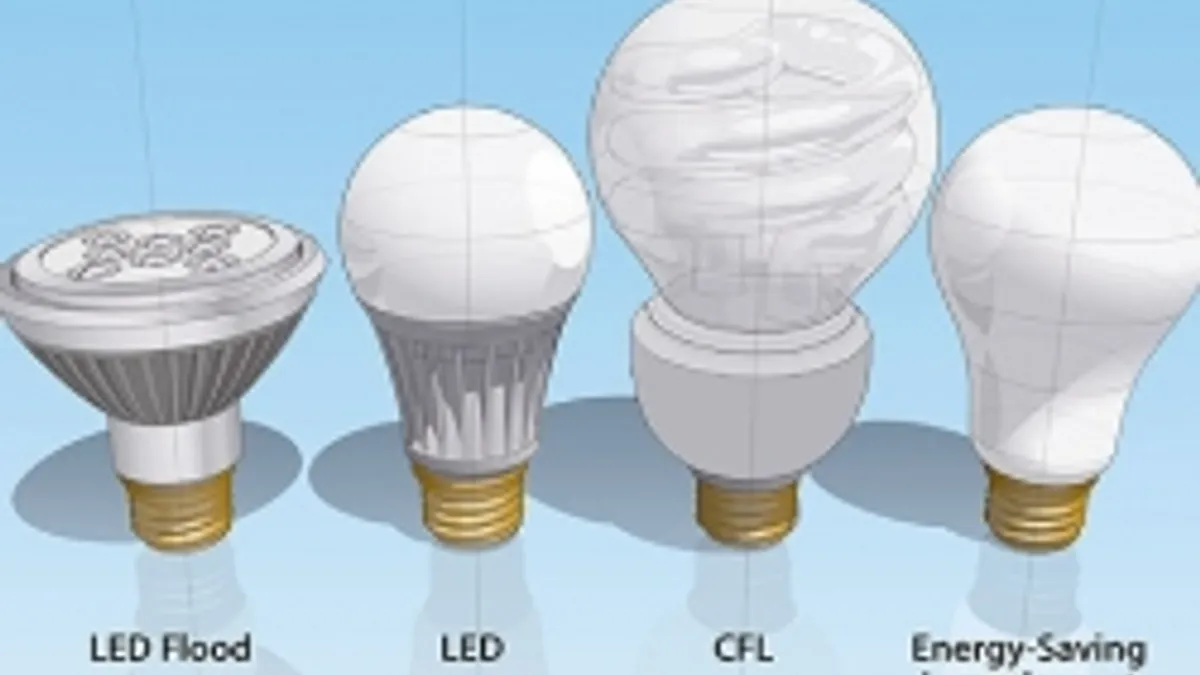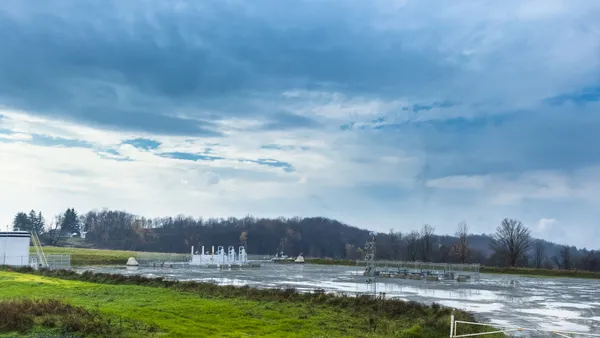Dive Brief:
- More than 50 Democratic and independent lawmakers in the House and Senate on Feb. 8 signed a letter asking the U.S. Department of Energy (DOE) to prioritize updates to appliance efficiency standards, warning that work to reverse Trump-era efficiency rule changes is slowing an already difficult task.
- There were 28 appliance standard updates already overdue when President Joe Biden took office and more deadlines are approaching, according to the lawmakers. "The scale of the rulemaking task ahead is challenging," the group wrote, noting updated standards could save customers $100 annually on utility bills by 2030.
- Advocates say DOE is making progress on efficiency rules, but the work is slow. The agency is now considering codifying stricter efficiency standards for light bulbs, teeing up debate over how fast the change can be implemented.
Dive Insight:
Under the Trump administration, DOE finalized rule changes that complicated the process for setting appliance standards and gave manufacturers more leeway on product assessments and testing waivers. Biden's DOE has been rolling back some of the changes, but lawmakers and efficiency advocates warn the process is taking a long time.
"We are concerned that the progress in undoing harmful rules issued under the previous administration has been slow and that it will make it even more difficult to make the necessary updates quickly," the lawmakers wrote. "While Department of Energy staff have diligently advanced early-stage rulemaking steps for many new and updated standards, the scale of the rulemaking task ahead is challenging."
The group is led by Sen. Jeanne Shaheen, D-New Hampshire, and Rep. Peter Welch, D-Vermont. The lawmakers said DOE should "ensure that the staffing and processes are quickly put in place to produce timely reviews and prompt final rule completion."
Updated standards could reduce greenhouse gas emissions by up to 3 gigatons by 2050, lawmakers said.
DOE "must keep efficiency standards up-to-date, so that Americans can access the most efficient appliances possible," Welch said in a statement.
The appliance efficiency standards are "critical for cutting utility bills and greenhouse gas emissions, but right now they’re woefully out of date,” Steven Nadel, executive director of the American Council for an Energy-Efficient Economy, said in a statement.
“The Biden administration has a big job to update standards for dozens of products and it should act with far more urgency," Nadel said.
A final decision on light bulb efficiency could be coming soon. The comment period on a proposal to codify a "backstop standard" of 45 lumens/watt closed Jan. 27, with groups debating how quickly the stricter standards could be implemented.
DOE, in its rule proposed in December, said that if it strengthens light bulb standards then it also "proposes to use its enforcement discretion to provide the necessary flexibility to avoid undue market disruption" and "would consider a staggered implementation" that helps mitigate impact on manufacturers.
The National Electrical Manufacturers Association, which represents light bulb makers, filed comments warning that "logistical, contractual, and other immutable challenges preclude an immediate or even short-term effective date for any implementation of a 45 lumens per watt-based sales ban on halogen and incandescent lamps."
Efficiency advocates told DOE that prompt implementation of the new standard is particularly important for low- and moderate-income households which have higher energy burdens and may lack access to efficient light bulbs.
"Allowance for continued manufacture and sale of inefficient bulbs would benefit light bulb manufacturers at the expense of consumers and the planet," said more than 20 groups, led by the Appliance Standards Awareness Project. "We strongly urge DOE to finalize and fully implement the backstop standard without further delay.”















